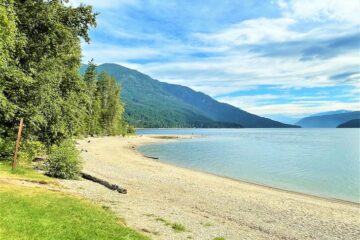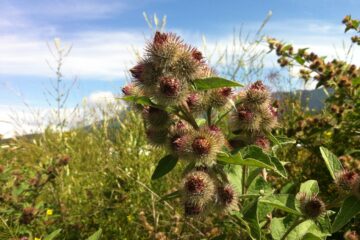Spreading the Word About the Success of Collaboration
In May 2016, partners with the Canadian Columbia Basin Regional Aquatic Invasive Species Program presented at the 19th International Conference on Aquatic Invasive Species: Global Advances in Research and Management of AIS. This conference series is widely considered the most comprehensive international forum on aquatic invasive species and continues to evolve to address new and emerging issues. Sessions and presentations included the review of accumulated scientific knowledge; presentation of the latest field research; introduction of new technological developments for prevention, monitoring and control; discussion of policy and legislation; and mechanisms to raise awareness through education and outreach initiatives. Presentations from this conference can be viewed here.
Welcome to Our Newest Steering Committee Members
The Columbia Basin Aquatic Invasive Species Team is excited to welcome new members to the steering committee:
- Thomas Boos, AIS Coordinator, Montana Fish, Wildlife and Parks
- Justin Bush, Executive Coordinator, Washington Invasive Species Council
- Jesse Schultz, Biologist, Washington Department of Fish and Wildlife
- Michael Zimmer, Biologist, Okanagan Nation Alliance
These new members will greatly increase collaborative opportunities that improve our efforts at preventing and managing harmful aquatic invasive species. To learn more about our new partners, and the rest of the AIS Team, visit their websites on our Columbia Basin AIS Team page.
First Detection of a Devastating Fish Disease
A non-native parasite that burrows into the head and spine of salmonids, such as salmon and trout, has been detected for the first time ever in Canada. Whirling disease is caused by this non-native parasite, making salmonids vulnerable to predators. The parasite can spread from one water body to another through contaminated bait and fishing gear. BC residents are urged to take extra precautions following the discovery of the potentially fatal whirling disease. Remember to follow the Clean, Drain, Dry process on all watercraft and fishing gear before and after entering BC’s lakes and rivers. Read the full story here.
Invasive Mussels Keep Getting Closer to BC!
In October, destructive invasive mussels were detected for the first time in Montana. Montana’s wildlife agency confirmed that there is a positive hit for zebra or quagga mussels in a reservoir located in the eastern part of the state. This is a little too close for comfort for us here in B.C.! We are just one of a handful of provinces and states that are still zebra and quagga mussel free…and we want to keep it that way! Montana’s Fish, Wildlife and Parks staff say they’ve been preparing for this possibility for some time. Read more here about how this threat is being addressed at: (http://dnrc.mt.gov/divisions/cardd/MISAC) and (http://www.kbzk.com/story/33686940/glacier-national-park-announces-boating-closure-due-to-invasive-mussels).
It’s Here – the new Clean Drain Dry Mobile App
It just keeps getting easier to do your part in protecting our waters from destructive aquatic invasive species! The new Clean Drain Dry (CDD) Mobile App uses unique campaign marketing materials and graphics to transport users to a video experience that informs and empowers positive actions to prevent the introduction and spread aquatic invasive species. Learn more here.
Protecting BC Waters from Invasive Zebra and Quagga Mussels
The Provincial Invasive Mussel Defense Program had eight watercraft inspection stations operating in BC this year, and that’s great news because 17 boats contaminated with invasive mussels were caught before they had a chance to enter BC’s pristine water bodies! Protecting BC waters from these destructive invasive mussels is serious business; 46 tickets were issued to motorists for failing to stop at a watercraft inspection station! See all of the numbers and more about aquatic invasive species here.


